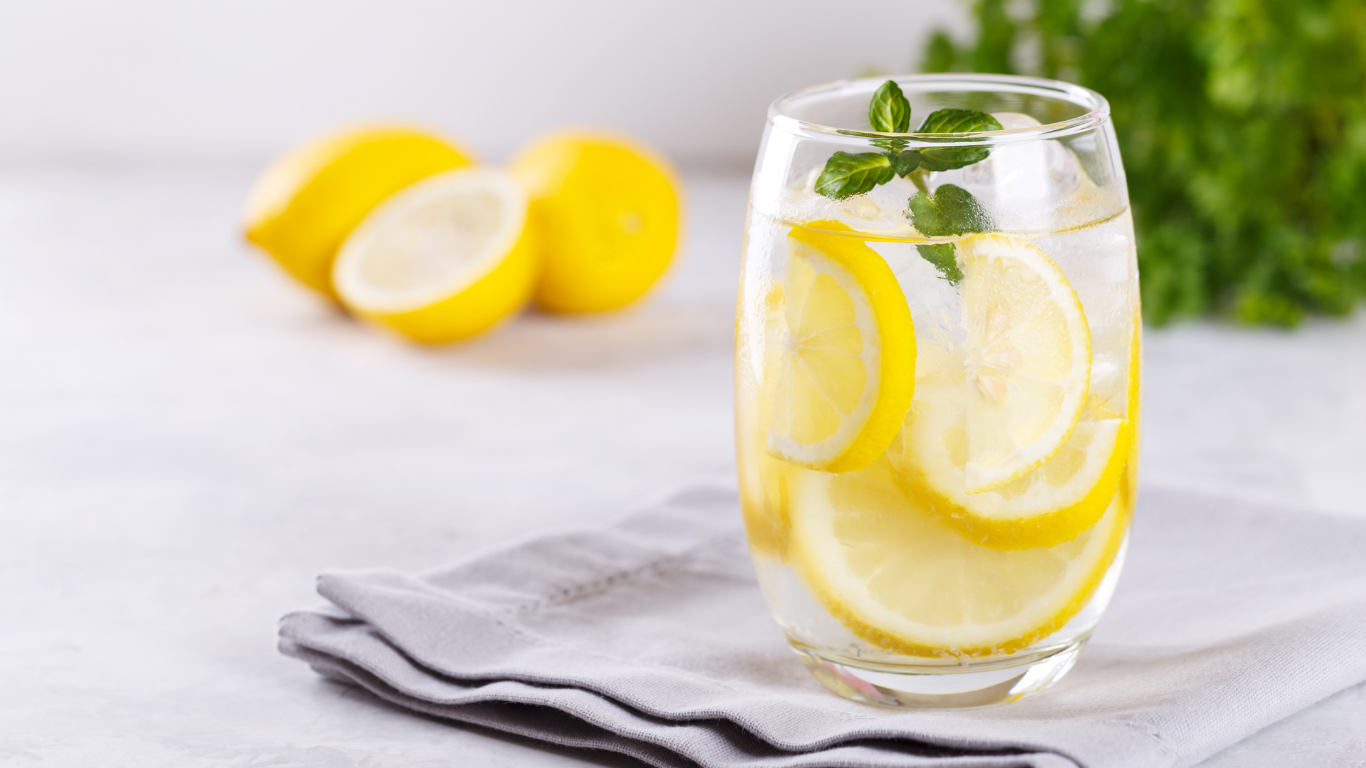1. Know What’s Causing the Bloat
Bloating and gas can be triggered by a multitude of factors, including what you eat, how fast you eat, and how well your digestive system is functioning. Common summer culprits include:
- Eating large, fiber-rich meals your body isn’t used to
- Swallowing extra air from carbonated drinks or chewing gum
- Dehydration (slows digestion)
- Increased intake of raw veggies & fruit, which can ferment more easily in the gut
- Changes in your routine that affect digestion (travel, sleep, stress)
Fermentation of certain carbohydrates in the gut produces gas as a byproduct. If your microbiome is out of balance or you’re eating more fermentable fibers (aka FODMAPs), you may feel it more intensely.
Summer can be full of digestive curveballs—travel, heat, cookouts, and hopefully a whole lot of raw veggies and seasonal fruit. If you’re dealing with more bloating or gas this time of year, you’re definitely not alone.
The good news?
A few small changes to how you eat, drink, and support your gut can make a big difference in how you feel! Let’s break down some summer-specific tips that actually work—backed by research and rooted in a functional nutrition approach.
2. Be Smart With Fiber
Fiber is essential for gut health, but more isn’t always better—especially if you ramp it up too quickly. Different types of fiber play different roles:
- Soluble fiber (found in oats, chia seeds, berries) forms a gel and helps feed good gut bacteria.
- Insoluble fiber (in veggies like zucchini, cucumber, and leafy greens) adds bulk and helps with motility.
Too much fiber too fast can overwhelm your gut and lead to excess gas. Gradual increases and plenty of water are key. If you’re adding more plant foods this summer, aim to cook your veggies when possible—cooking breaks down some of the fiber and makes them easier to digest.
☀️ Summer-friendly fiber tips:
- Add chia to smoothies or overnight oats
- Lightly sauté or grill veggies instead of eating everything raw
- Snack on berries for fiber + antioxidants
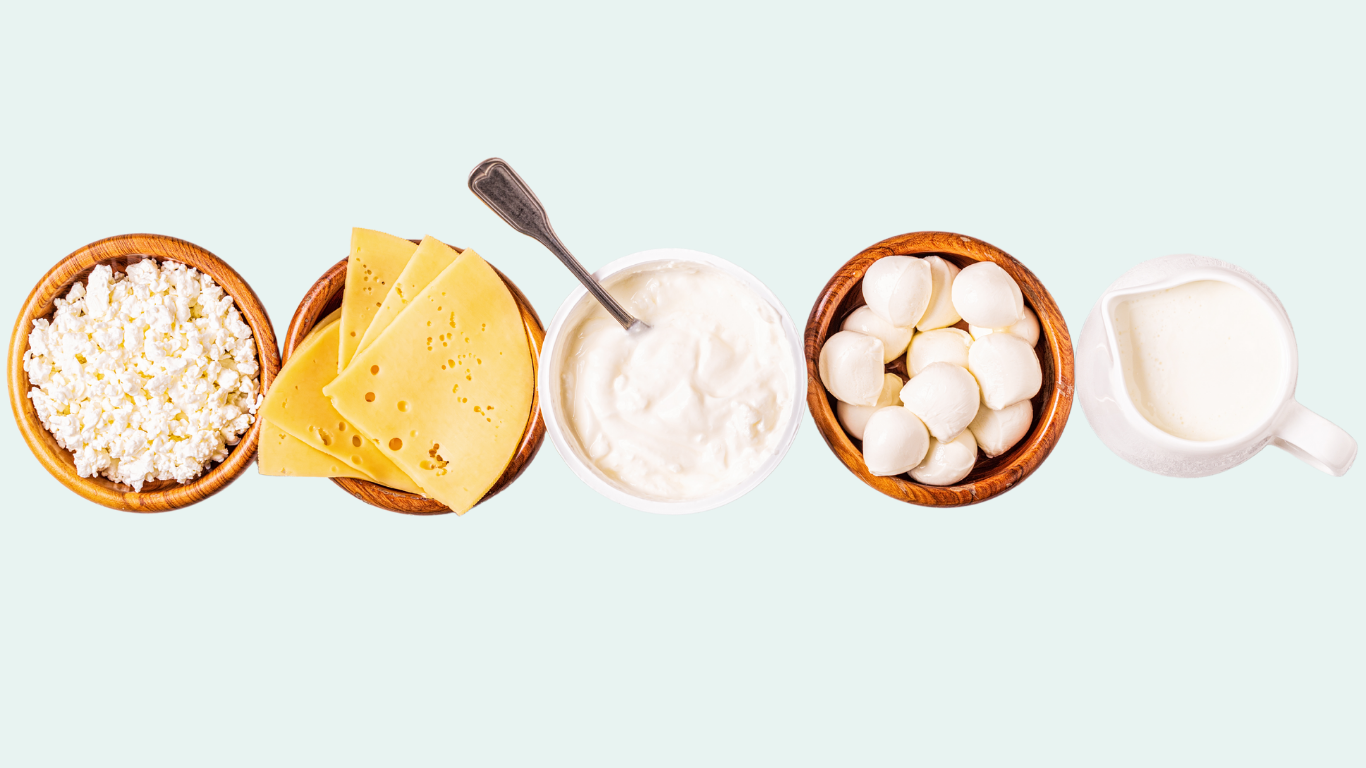
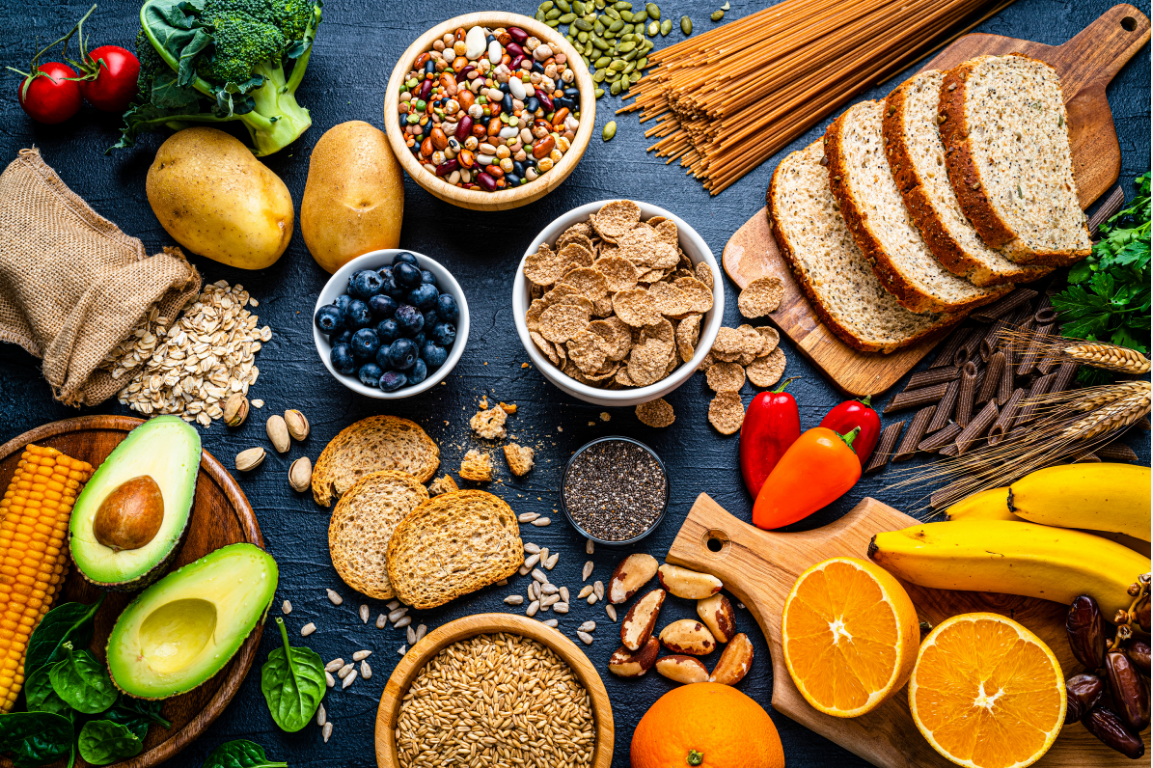

3. Support Your Gut With Probiotics
Your gut microbiome plays a big role in how well you digest food—and how much gas gets produced in the process. Probiotics (beneficial bacteria) can help restore balance and reduce symptoms like bloating, especially if you’ve recently taken antibiotics or been under stress.
Try incorporating naturally probiotic-rich foods like:
- Yogurt or kefir (look for “live and active cultures”)
- Fermented veggies like sauerkraut or kimchi
- Miso or tempeh
- Kombucha (watch the sugar content!)
Not all probiotics are the same —if you’re not sure which strain is right for you, we can help guide you through it. Check out my blog:
How to Choose A Probiotic: Your Ultimate Guide to find the right one for you!

4. Stay Hydrated (Seriously)
Hydration is one of the most overlooked keys to digestive comfort. Water helps move fiber through the digestive tract, prevents constipation, and keeps things flowing.
In the summer and especially in the intense heat we’ve been having, it’s easy to get dehydrated without realizing it—especially if you’re more active or sweating often. Even mild dehydration can slow digestion and increase bloating. (Cleveland Clinic: https://health.clevelandclinic.org/how-to-prevent-dehydration)
💦 Tips to stay hydrated:
- Carry a water bottle and sip throughout the day
- Add cucumber, mint, or citrus for a flavor boost
- Include electrolytes if you’re sweating heavily or drinking caffeine/alcohol
Ready to get to the root of your gut issues?
If bloating is becoming your norm, it’s time for a more personalized approach.
Schedule a New Client Consult and we’ll talk through your history, goals, and what might really be going on—so you can walk away with a custom plan that helps you feel better fast.
No guesswork. Just clear next steps.
FAQs About Summer Bloating
What foods cause the most bloating in summer?
Raw vegetables, beans, dairy, and carbonated and alcoholic drinks are common culprits.
Can probiotics help with summer bloating?
Yes—certain strains like *Lactobacillus* and *Bifidobacterium* may reduce gas and support digestion.
What’s the fastest way to reduce bloating naturally?
Go for a gentle walk, sip warm water, and avoid fizzy drinks or gum to ease discomfort quickly.
Why does travel make bloating worse?
Changes in routine (meals, sleep, hydration, and stress) can throw off your digestion and gut motility. Airplane travel also causes gas in your intestines to expand due to cabin pressure, which may contribute to bloating.
Can heat affect digestion?
Yes—higher temperatures can lead to mild dehydration, which slows digestion and makes bloating more likely. The stress of heat and disrupted routines can also impact gut-brain signaling.
Should I avoid fruit in the summer to reduce bloating?
Seasonal fruit offers fiber, antioxidants, and hydration—but too much at once (especially high-FODMAP options like watermelon or apples) may cause gas. Try pairing fruit with protein or fat to slow digestion.

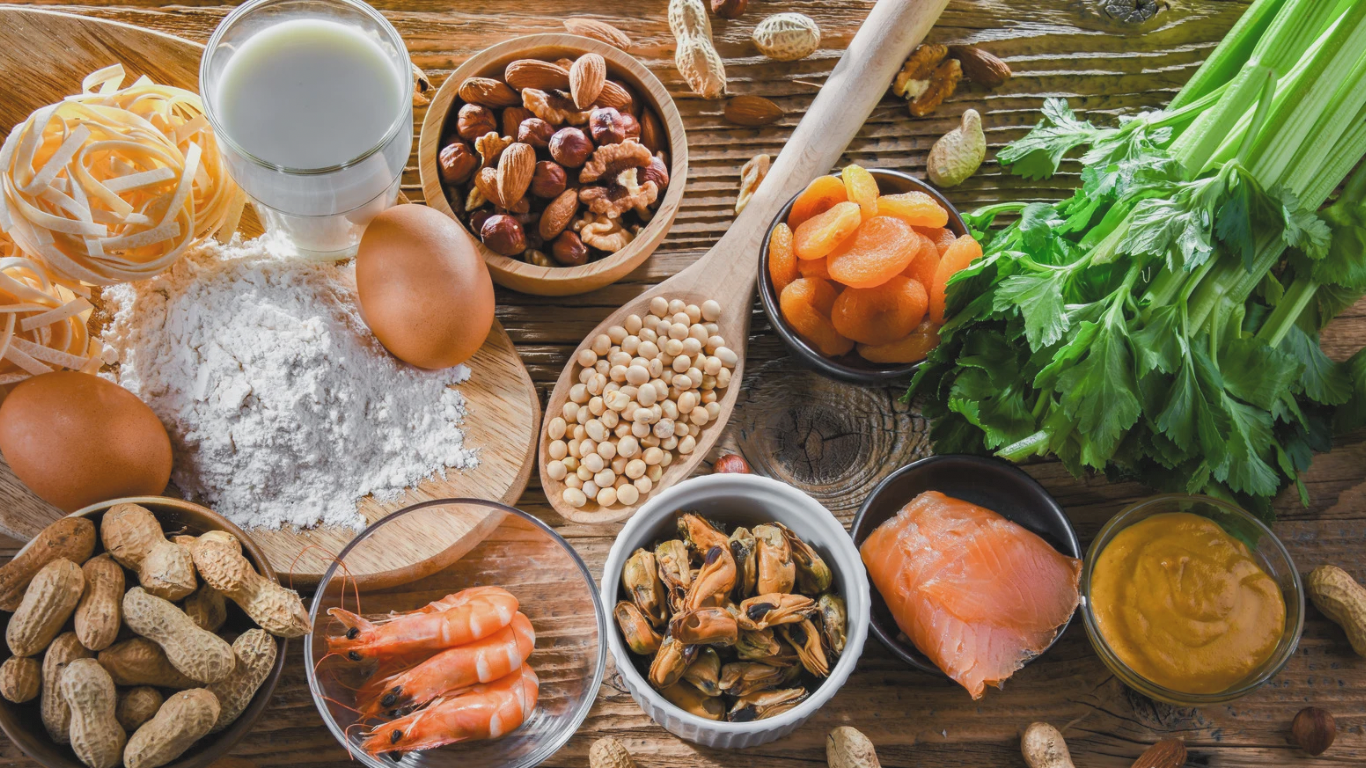
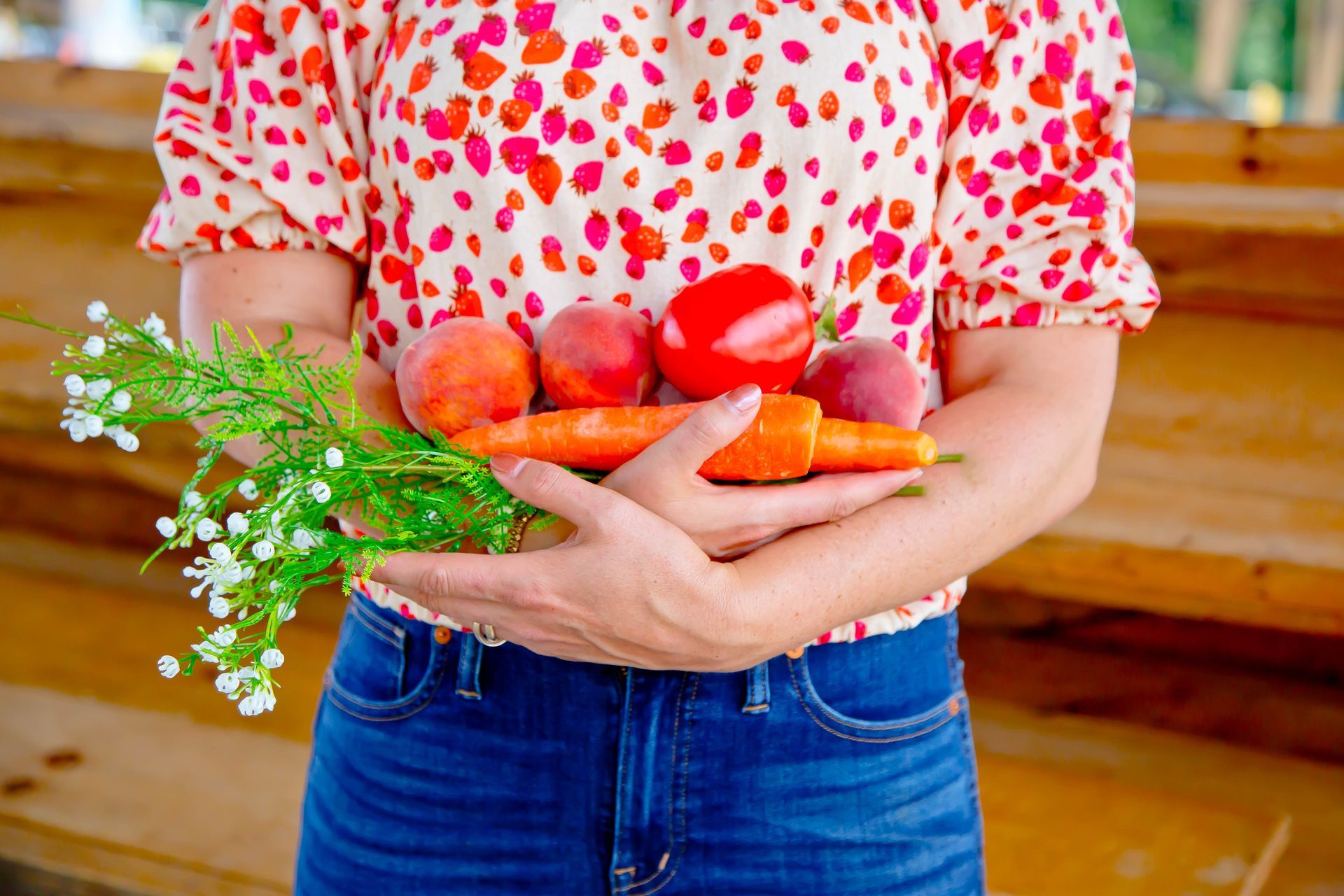

Recent Blog Posts
Share this post!
About the Author
Rhya Pachin is a licensed dietitian nutritionist who employs an "integrative" approach to support overall health rather than addressing just one symptom. As a certified LEAP therapist, she designs and supervises custom elimination diets. Her focus areas include gastrointestinal conditions like IBS and IBD, autoimmune diseases such as rheumatoid arthritis and Hashimoto's, persistent weight issues, food sensitivities, and chronic inflammatory conditions in both adults and children.



